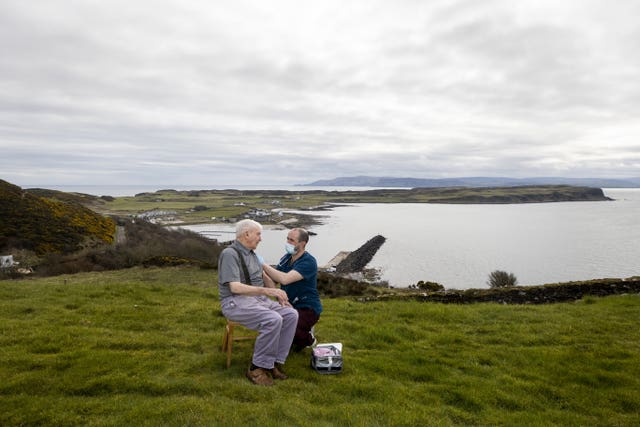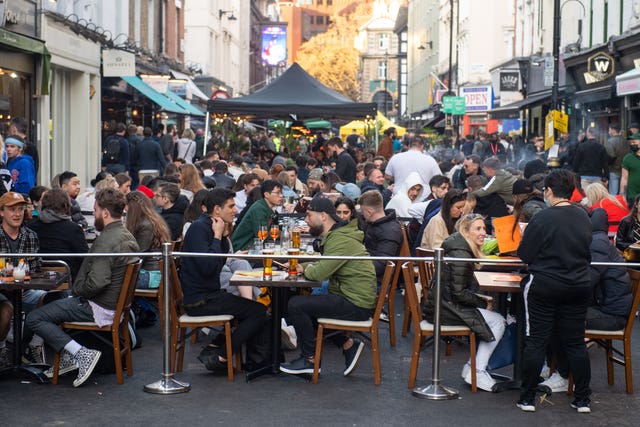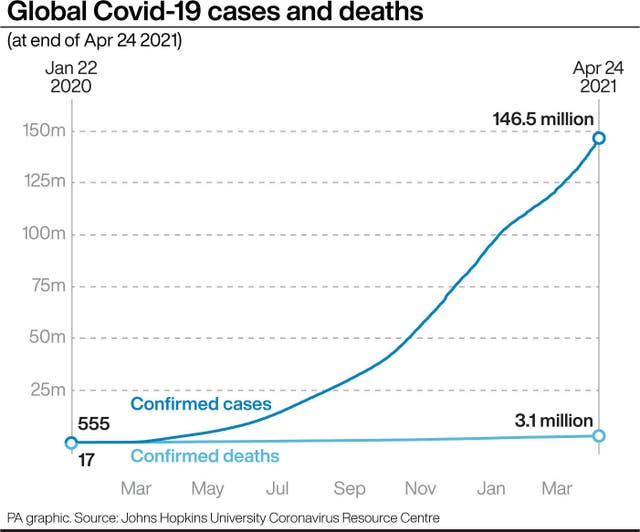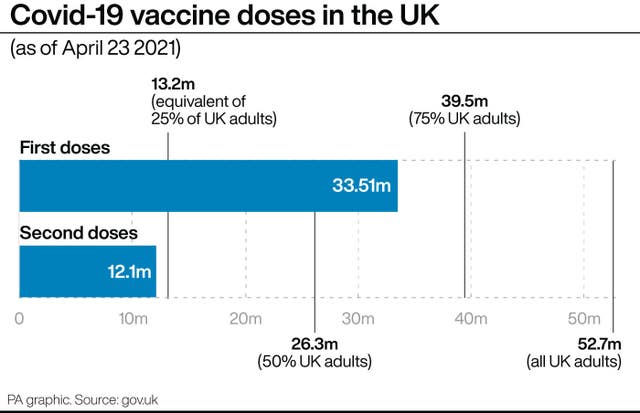A Government adviser has said calls from scientists and academics to end coronavirus restrictions are “wrong” and “remarkably insular”.
In an open letter, the scientists said “a good society cannot be created by obsessive focus on a single cause of ill-health” and that Covid-19 “no longer requires exceptional measures of control in everyday life”.
The 22 signatories – who include Professor Carl Heneghan, director of the Centre for Evidence Based Medicine at University of Oxford and Professor Karol Sikora from the medicine school at the University of Buckingham – say mandatory face coverings, physical distancing and mass community testing should end no later than June 21.
Step four of the Government’s road map for England currently states that all legal limits on social contact will be removed by June 21 at the earliest, when restrictions on large events such as festivals are also expected to ease.
Asked about his thoughts on the letter, Professor Stephen Reicher, from the University of St Andrews and a member of the Scientific Pandemic Insights Group on Behaviours (Spi-B), which advises ministers, told the PA news agency: “We have heard from these people before, arguing that Covid isn’t a risk and that restrictions should be lifted.
“They were wrong then and they are wrong now. Indeed, it seems remarkably insular to repeat the claim in a week where infections are their highest level ever worldwide and global deaths have passed the three million mark.
“Moreover, their whole argument is based on the false assumption that the debate is between those who do and don’t want lockdown.

“That includes us, the public, doing sensible things (like ensuring our homes are properly ventilated) to avoid unnecessary hazards and the Government doing sensible things to keep us safe (ensuring public spaces meet Covid standards, supporting people to stay home and self-isolate if infected, improving our test and trace system).”
Prof Reicher said the irony of saying “it’s all over” makes such measures less likely, makes increased infections more likely and therefore makes lockdown restrictions “a real possibility”.
He added: “This is what we argued in response to the previous times these people told us there is minimal threat, and indeed that is precisely what happened.
“The Government delayed taking action in the autumn. Infections soared and we had to impose harsher restrictions for longer. Don’t let these siren voices lead us back into lockdown again.”

Asked about mask-wearing in the coming months, one source said vaccines are working so well, and there is such good vaccine uptake among members of the public, that things will return to much more like normal life over the summer months, with cases dropping very low in May.
However, masks and possibly other measures may be needed next autumn and winter if cases surge, they said.
Nevertheless, the general view among scientific advisers is the spike in cases in winter will be lower than in the past due to high levels of immunity and vaccination.
The source said that what happens will depend on people’s behaviours as well as measures such as increased ventilation indoors, good hand hygiene and whether people isolate when they display symptoms.

The Foreign, Commonwealth and Development Office said the first of nine plane-loads of life-saving kit – including ventilators and oxygen concentrators – would arrive in New Delhi early on Tuesday.
Over the weekend, figures confirmed more than half of the UK’s total population has received a first dose of a Covid-19 vaccine.
Government data up to April 24 shows that of the 46,253,754 jabs given in the UK so far, 33,666,638 were first doses – a rise of 142,215 on the previous day.
Speaking ahead of a new campaign urging under-50s to get the jab, Health Secretary Matt Hancock said he is thrilled the uptake among everyone aged 50 and above is over 95%.
Vaccine hesitancy in Britain is highest among 16 to 29-year-olds, according to recent figures from the Office for National Statistics (ONS).
An ONS survey carried out in February and March found some 12% of people in this age group said they had declined the vaccine, were unlikely to have the jab if offered or did not know if they would have a vaccination.

Hesitancy was 9% among those aged 30 to 49 – the equivalent of 1.6 million people.
Meanwhile, outdoor hospitality will reopen in Wales from Monday, alongside outdoor attractions including swimming pools, funfairs and theme parks.
In Scotland, cafes, restaurants and beer gardens can open, along with non-essential shops, gyms, swimming pools, libraries and museums.






